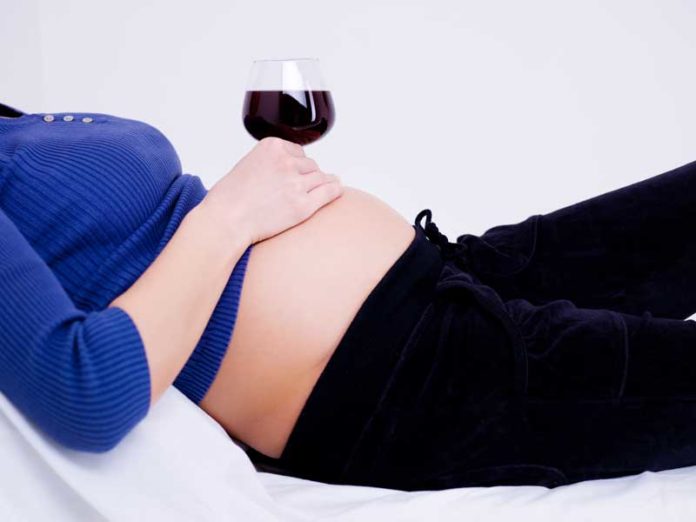Light drinking during pregnancy is not linked to adverse behavioural or cognitive outcomes in childhood, suggests a new study published in BJOG: An International Journal of Obstetrics and Gynaecology.
This study collated data from the Millennium Cohort Study, a national study of infants born in the UK between 2000-2002, to assess whether light drinking (up to two units of alcohol per week) in pregnancy was linked to unfavourable developmental outcomes in 7-year-old children.
Previous research has linked heavy alcohol consumption during pregnancy with health and developmental problems in children, however, the effects of low level consumption remains unclear.
Researchers, from University College London, used information on 10,534 7-year-olds from home-visit interviews and questionnaires completed by parents and teachers to identify social and emotional behaviour (such as hyperactivity, attention or conduct problems). The children were also tested for cognitive performance in maths, reading and spatial skills.
Groups who made up the sample were mothers who never drank (12.7%), those who did not drink in pregnancy but otherwise did drink (57.1%), those who were light drinkers (23.1%) and those who drank more during pregnancy (7.2%).
This study focused on the results from children born to mothers who were light drinkers and those who abstained from alcohol during pregnancy.
Children born to light drinkers were shown to have more favourable (lower) behavioural difficulties scores compared with those born to mothers who didn’t drink during pregnancy. However, the difference was not enough to be significant, except in the case of boys born to light drinkers who had slightly fewer reported behavioural problems.
Furthermore, children born to light drinkers were also found to have more favourable (higher) cognitive test scores compared to children born to non-drinkers, but these differences mostly lost statistical significance, except for reading and spatial skills in boys.
The paper concludes that while children born to light drinkers appeared to have more favourable developmental profiles compared to those born to mothers who did not drink during pregnancy, after statistical adjustment these differences largely disappeared.
Professor Yvonne Kelly, co-director, ESRC International Centre for Lifecourse Studies (ICLS) at University College London, and co-author of the study said:
“There appears to be no increased risk of negative impacts of light drinking in pregnancy on behavioural or cognitive development in 7-year-old children.
“We need to understand more about how children’s environments influence their behavioural and intellectual development. While we have followed these children for the first seven years of their lives, further research is needed to detect whether any adverse effects of low levels of alcohol consumption in pregnancy emerge later in childhood.”
John Thorp, BJOG Deputy-Editor-in-Chief, added:
“These findings, that drinking not more than one or two units of alcohol per week during pregnancy is not linked to developmental problems in early-mid childhood, are consistent with current UK Department of Health guidelines.
“However, it remains unclear as to what level of alcohol consumption may have adverse outcomes so this should not alter current advice and if women are worried about consumption levels the safest option would be to abstain from drinking during pregnancy.”
Source: WILEY










